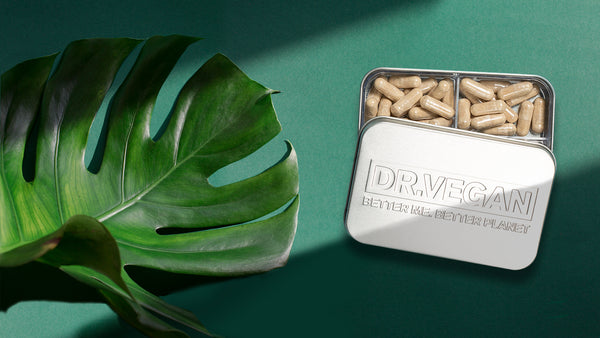Why is Vitamin D so important?

You will have heard a lot about the importance of Vitamin D, especially for your immune system. There’s good reason for this. Vitamin D is one of the nutrients that adults are most deficient in and as a result, the Government recommends we take a Vitamin D supplement. We know how important Vitamin D is, but what is it good for and how do we get it? Here are a few tips on how to get Vitamin D in your diet and reasons why it is so important.
What is Vitamin D?
Vitamin D isn’t actually a vitamin, it is a hormone which is made in the skin when exposed to UVB sunlight (the same sunlight which is responsible for sunburn), which gives it the name ‘The Sunshine Vitamin’.
People with darker skin need to have more time in the sun to produce Vitamin D due to the higher levels of melanin in their bodies which can actually inhibit Vitamin D production. In winter, 30-40% of all age groups in the general population in the UK are classed as Vitamin D deficient. Learn more in our experts' article How do I know if I'm deficient in Vitamin D.
What is Vitamin D good for?
Vitamin D is important for various functions in our body, in particular:
Immunity
Vitamin D helps regulate our immune system. A normal immune system is one that is not under or over functioning. If it is under functioning, you may get frequent colds and infections. If it is over functioning, you may develop auto-immune conditions (where your immune system mistakenly attacks your body). If you seem to be constantly suffering from various coughs and colds, it may be that you are deficient in Vitamin D which is affecting your immunity.
Read the science of staying infection-free by Immunologist Dr. Jenna Macciochi and 'Top 6 plant-based foods to boost your immune system'.
Discover what your diet is missing by creating your free Diet Profile.
Bone Health
Vitamin D is an essential nutrient for protecting your bones because it helps your body absorb calcium and phosphorous and take these into your bones. Children need Vitamin D to help build their bones and adults need it to help keep their bones strong and healthy.
A deficiency in Vitamin D can lead to conditions such as Rickets (a Vitamin D deficiency in children), Arthritis and Osteoporosis. Vitamin D is also important for the development of bones in a foetus so it is also an important nutrient for pregnant women.
Heart Health
Studies have shown that people with lower levels of Vitamin D have a higher risk of cardiovascular disease. This is thought to be because Vitamin D reduces the tendency for Calcium to accumulate in the soft tissue, and it reduces LDL cholesterol which improves control of inflammation.
Best sources of Vitamin D in food
It is possible to get Vitamin D in your diet but generally only in small amounts. Good food sources of Vitamin D in your diet include oily fish such as salmon, sardines, anchovies, herring, trout and tuna.
Mushrooms and egg yolks are also good sources, and you will find some foods are fortified with Vitamin D (which means Vitamin D has been added to them) such as bread.
However these sources rarely provide sufficient amounts of Vitamin D which is why the Government recommend we all take a Vitamin D supplement.
What should I look for in a Vitamin D supplement?
Look for a Vitamin D which is D3 - not D2 - as D3 this is the best form, and look for a vegan Vitamin D3. Vitamin D is a fat-soluble vitamin so it is best to your Vitamin D3 supplement alongside a meal.
View our range of vegan vitamins and supplements.
If you enjoyed reading this article, you might like: How do I know if I'm deficient in Vitamin D?
Want to hear more from our nutritionists? Sign up to our email newsletter for insights and exclusive offers:
* Public Health England and Food Standards Agency (2014).

